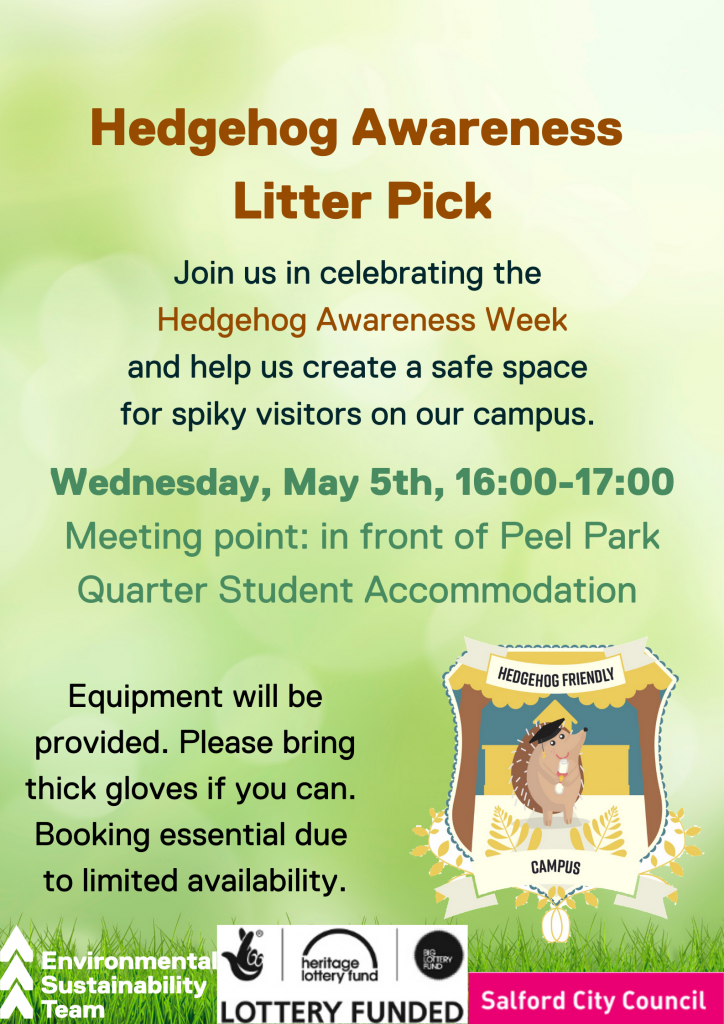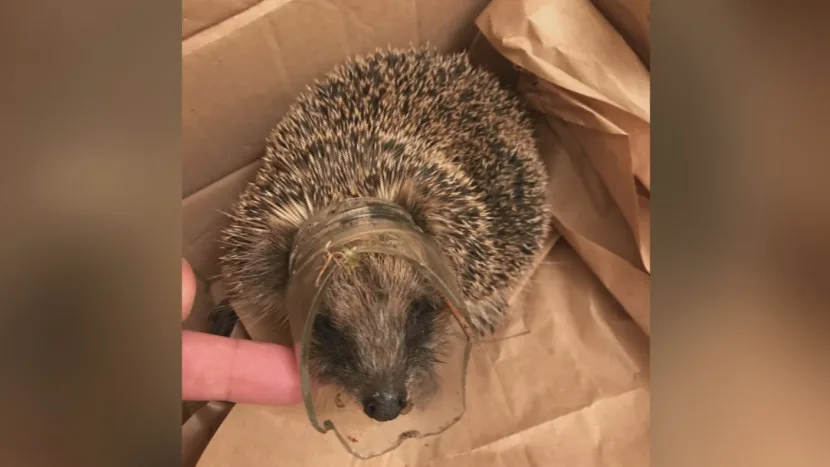Happy Hedgehog Awareness Week!
This annual event aims to raise the profile of hedgehogs in the UK and spread awareness of the problems they face, as well as the ways we can help them. Hedgehogs have been listed as vulnerable on the Red List for Britain’s native mammals, which highlights species at risk of extinction in the next 20 years.
As hedgehogs and other animals move to the expanding urban areas, they face a number of threats and challenges – one of which is littering. In fact, RSPCA receives about 5,000 calls a year about animals affected by this. Hedgehogs are particularly at risk, as they are inquisitive by nature, which often causes them to get stuck or entangled in rubbish while looking for food. Here’s a list of household items which are the most common causes of harm to hedgehogs, along with some tips to prevent that.
- Plastic bags – this includes shopping bags and bin bags. Hedgehogs can get inside them and suffocate, or try to eat them and choke. Tip: tie a knot in the top of the bag before disposal.
- Plastic can holders – hedgehogs can get entangled in them or suffer wounds or choke. Tip: cut each loop open before recycling.
- Balloons – hedgehogs can swallow them and choke. Tip: deflate and cut balloons before disposal. Or, better yet, opt for paper decorations and recycle them afterwards.
- Plastic containers and cans – hedgehogs can get stuck in these, or injured by sharp edges. Tip: clean and empty containers after use and pinch cans shut, or cut containers in half before disposal.
- Elastic bands – hedgehogs can get entangled in these or swallow them and choke. Tip: reuse elastic bands when possible and cut them open before disposal.
- Chewing gum – hedgehogs can get stuck in it or try eat it and choke. Tip: dispose of it in the bin (it’s best to use a dedicated recycling bin, if there’s one around you).
- Glass – hedgehogs can get trapped in containers such as jars, or injured on broken glass. Tip: clean and recycle.
- Netting – this includes nets used for plants, fruit and vegetables, sports nets, etc. Hedgehogs can get entangled in these. Tip: try to avoid buying produce sold in nets, or cut them open before disposal. For tree netting, here you can find a wildlife friendly netting guide.
The best, and easiest, way to help hedgehogs on a daily basis is to make sure that we dispose of our rubbish responsibly by putting it in the correct bin, and reusing items whenever we can. You can also make a donation to the British Hedgehog Preservation Society here to support their work.
Join us this afternoon for the Hedgehog Awareness Litter Pick to help keep our local area clear of litter and safe for spiky visitors. Sign up here.

Sources: RSPCA, British Hedgehog Preservation Society

